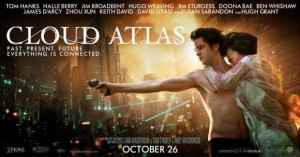Jen Chaney on Liz Lemon and “30 Rock”
Posted on January 31, 2013 at 3:59 pm
Two television programs with almost-identical themes premiered in the fall of 2006. They were both behind-the-scenes shows about the writers and performers on a late-night topical sketch comedy series.
One was an hour-long drama from “The West Wing’s” Aaron Sorkin, starring “Friends” alum Matthew Perry. The other was a half-hour comedy from Tina Fey, then best known as the Weekend Update anchor on “Saturday Night Live.”
I not only assumed that Sorkin’s “Studio 60” would be a triumph, I actually loved it. Critics and audiences did not. Meanwhile, “30 Rock,” lasted for seven years. While it never had a huge audience, it had a very loyal one, and it has been very influential. In fact, Sorkin himself appeared on one episode, making fun of “Studio 60.”
The always-brilliant Jen Chaney has an insightful piece on Slate about Fey’s influence as a woman writing and producing her own show, both in paving the way for producer/writer/stars like Whitney Cummings and Lena Dunham and in her commentary on the television business and the corporate world.
But if we learned anything from 30 Rock—aside from the fact that it’s possible to get away with putting both Jane Krakowski and Jon Hamm in black face when done in the proper comedic context—it’s that the TV business is liberally peppered with “dummies,” as Lemon would call them. Some are actual dummies, while others may be legitimately intelligent individuals, like Jack Donaghy, who nevertheless fill their network’s programming lineup with shows that cater to dummies (MILF Island). What is great and smart does not always survive, and with every flicker of progress for TV gender equality comes a setback, like the recent cancellations of Fox’s Ben and Kate and ABC’s Don’t Trust the B—- in Apt. 23, both of which were created by women.
Even though more opportunities for women now exist, TV comedy, like TV in general, still remains an unquestionably male-dominated field. Modern Family has been the Emmy-anointed Best Comedy on television for three years running, but only one of the 12 producers credited with last year’s victory is a woman. Fewer than half of the members of the writing staff of The Big Bang Theory are Pennys as opposed to Sheldons. According to IMDB, in the 20-plus years that The Simpsons has been on the air, only seven of its 71 episode-writing credits belong to women. Even the 30 Rock writing staff skews male but, to its credit, just barely: According toNBC, five of its 12 current writers are women.
The story of the show within the 30 Rock show reflects this reality in its usual hyperbolically humorous terms. Just look at Liz Lemon’s arc: She started out running a sketch-comedy series called The Girlie Show, which was defeminized to become TGS with Tracy Jordan and, finally, in a recent act of corporate-sponsored desperation designed to save the show from cancellation, turned into Bro Body Douche Presents the Man Cave, with Liz Lemon’s name in the credits changed to Todd Debeikis. The subtext: Sure, there’s a lot more lady business on TV these days. But ultimately, the place is still Bro-Town.
Which brings us to what may be the most important lesson and legacy of 30 Rock, at least for those looking at it as a guidepost for women in the entertainment field: the relationship between Liz Lemon and Jack Donaghy. Much has been said about the fact that Fey and her writers smartly opted to avoid a romance for their two foils, even though there were occasional zaps of sexual energy between them. Others—most notably Linda Holmes at NPR—lamented the degree to which Lemon eventually turned into a completely inept pseudochild who couldn’t function without approval from Daddy Donaghy. That piece and others expressing frustration with the state of Liz Lemonism circa the latter seasons of 30 Rock prompted Emily Nussbaum of The New Yorker to leap to the defense of both Lemon and her relationship with her superior. “Liz needed Jack because her life was a mess, but their rapport wasn’t primarily based around gender: it was about the cocky powerful suits versus the smug weakling creatives, although this satire was done (for once) with a woman at the center,” she wrote.

